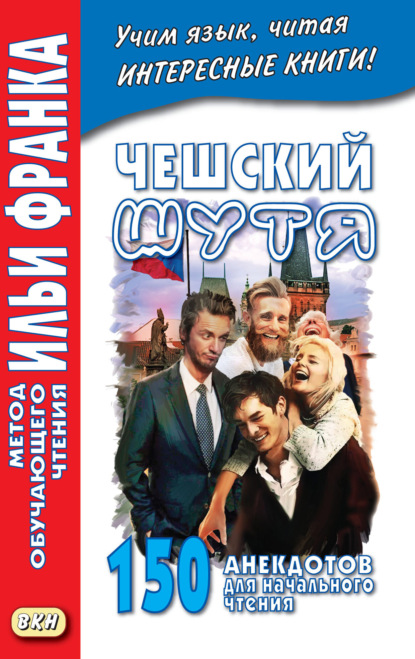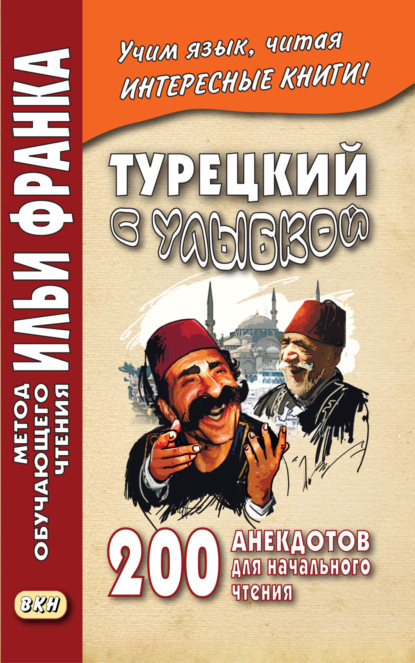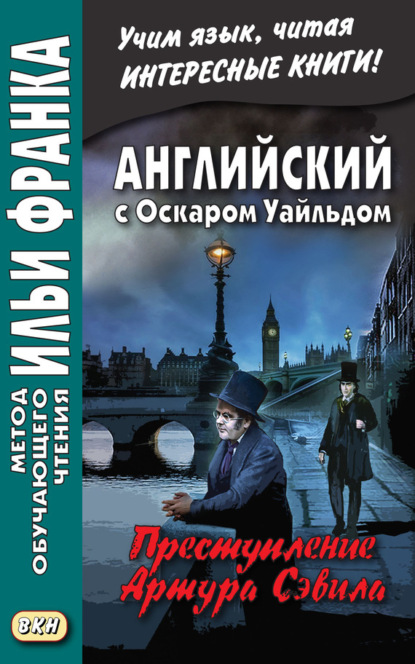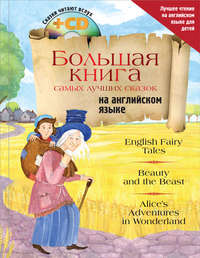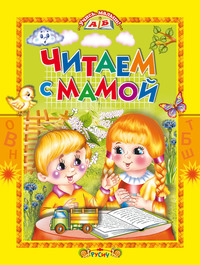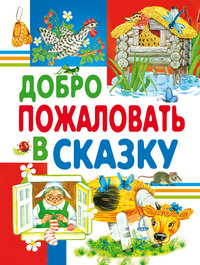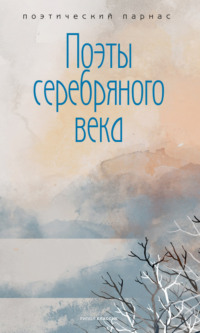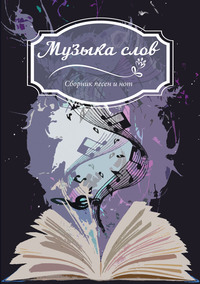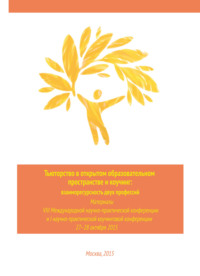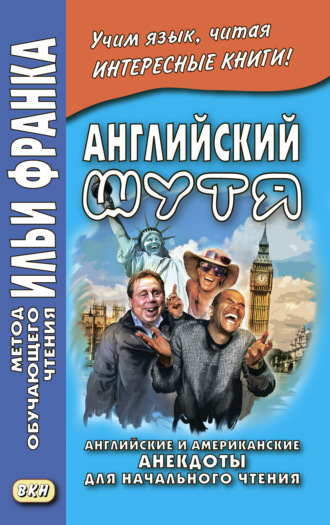
Полная версия
Английский шутя. Английские и американские анекдоты для начального чтения
Doctor: See, what did I tell you (видите, что я вам говорил).
health [helθ]
Doctor: You're in good health. You'll live to be eighty.
Patient: But, doctor, I am 80 right now.
Doctor: See, what did I tell you.
• You're in good health.
• See, what did I tell you.
15. Patient: Doctor, I have a serious memory problem (у меня серьезная проблема с памятью). I can't remember anything (я ничего не могу запомнить/вспомнить)!
Doctor: So, since when did you have this problem (так, с какого времени у вас эта проблема)?
Patient: What problem (какая проблема)?
serious ['sɪǝrɪǝs], memory ['mem(ǝ)rɪ], remember [rɪ'mǝmbǝ]
Patient: Doctor, I have a serious memory problem. I can't remember anything!
Doctor: So, since when did you have this problem?
Patient: What problem?
• I can't remember anything!
16. A man, after being hurt (человек, после того, как получил повреждения/травму: to hurt – причинить боль; повредить; ушибить), calls 911 for help (звонит 911 за помощью).
Man: Operator, operator, call me an ambulance (вызовите мне скорую помощь/назовите меня скорой помощью – игра слов: to call – вызывать/называть)!
Operator: Okay, sir, you're an ambulance (вы – скорая помощь)!
operator ['ɒp(ǝ)reɪtǝ], ambulance ['æmbjǝlǝns]
A man, after being hurt, calls 911 for help.
Man: Operator, operator, call me an ambulance!
Operator: Okay, sir, you're an ambulance!
• Call me an ambulance!
17. A drummer, sick of all the drummer jokes (ударник, уставший от всех шуток про ударников), decides to change his instrument (решает сменить инструмент). After some thought (после некоторого раздумья), he decides on the accordion (он выбирает аккордеон). So he goes to the music store (и он идет в музыкальный магазин) and says to the owner (и говорит хозяину), “I'd like to look at the accordions, please (я хочу взглянуть на аккордеоны, пожалуйста).”
The owner gestures (указывает) to a shelf in the corner (на полку в углу) and says, “All our accordions are over there (все наши аккордеоны вон там).”
After browsing (после беглого рассматривания; browse – молодые побеги; to browse – ощипывать листья, молодые побеги; пролистывать, небрежно просматривать), the drummer says, “I think I'd like the big red one in the corner (я думаю, мне подойдет большой красный в углу).”
The store owner looks at him (смотрит на него) and says, “You're a drummer, aren't you (вы ударник, не так ли)?”
The drummer, crestfallen (упавший духом: crest – гребешок /петуха/ + to fall – падать), says, “How did you know (как вы узнали)?”
The store owner says, “That 'big red accordion' is the radiator (тот большой красный аккордеон – радиатор).”
decides [dɪ'saɪdz], change [ʧeɪnʤ], instrument ['ɪnstrǝmǝnt], thought [θɔ:t], music ['mju:zɪk], gestures ['ʤesʧǝz], browsing ['braʋzɪŋ], crestfallen ['krestfɔ:l(ǝ)n], radiator ['reɪdɪeɪtǝ]
A drummer, sick of all the drummer jokes, decides to change his instrument.
After some thought, he decides on the accordion. So he goes to the music store and says to the owner, “I'd like to look at the accordions, please.”
The owner gestures to a shelf in the corner and says, “All our accordions are over there.”
After browsing, the drummer says, “I think I'd like the big red one in the corner.”
The store owner looks at him and says, “You're a drummer, aren't you?”
The drummer, crestfallen, says, “How did you know?”
The store owner says, “That 'big red accordion' is the radiator.”
• I'd like to look at the accordions, please.
• How did you know?
18. A guy walks into the doctor's office and says (человек заходит в кабинет врача и говорит; guy – /разг./ малый, парень), “Doc, I haven't had a bowel (кишка/кишечник) movement (движение) in a week (доктор, у меня нет стула неделю)!” The doctor gives him a prescription (дает ему рецепт) for a mild laxative (мягкого слабительного) and tells him, “If it doesn't work, let me know (если не поможет, дайте мне знать).”
A week later (спустя неделю), the guy is back (человек возвращается): “Doc, still (по-прежнему) no movement!”
The doctor says, “Hmm, guess (/мне/ кажется) you need (вам нужно) something stronger (что-то сильнее),” and prescribes (выписывает) a powerful laxative (сильное слабительное; power – мощь).
Still (все же/тем не менее) another week later (спустя еще неделю: «спустя другую неделю») the poor (несчастный) guy is back: “Doc, STILL nothing (по-прежнему ничего)!”
The doctor, worried (обеспокоенный), says, “We'd better get some more information about you (нам лучше получить побольше информации о вас) to try to figure out what's going on (чтобы попытаться выяснить, что происходит). What do you do for a living (что вы делаете «для проживания» = чем вы зарабатываете на жизнь)?”
“I'm a musician (я музыкант).”
The doctor looks up (поднимает глаза) and says, “Well, that's it (ну, понятно)! Here's (здесь: «вот») $10.00. Go get something to eat (идите купите что-нибудь поесть)!”
bowel ['baʋǝl], movement ['mu:vmǝnt], prescription [prɪ'skrɪpʃ(ǝ)n], laxative ['læksǝtɪv], prescribes [prɪ'skraɪbz], information [,ɪnfǝ'meɪʃ(ǝ)n], figure ['fɪɡǝ], living ['lɪvɪŋ], musician [mju:'zɪʃ(ǝ)n]
A guy walks into the doctor's office and says, “Doc, I haven't had a bowel movement in a week!” The doctor gives him a prescription for a mild laxative and tells him, “If it doesn't work, let me know.”
A week later the guy is back: “Doc, still no movement!”
The doctor says, “Hmm, guess you need something stronger,” and prescribes a powerful laxative.
Still another week later the poor guy is back: “Doc, STILL nothing!”
The doctor, worried, says, “We'd better get some more information about you to try to figure out what's going on. What do you do for a living?”
“I'm a musician.”
The doctor looks up and says, “Well, that's it! Here's $10.00. Go get something to eat!”
• That's it!
• What do you do for a living?
19. “Do you believe in life after death (вы верите в жизнь после смерти)?” the boss (начальник) asked one of his employees (спросил одного из его = своих служащих).
“Yes, Sir (да, сэр),” the new recruit replied (новый работник ответил).
“Well, then, that makes everything just fine (ну, замечательно: «это делает все просто прекрасным»),” the boss went on (продолжал). “After you left early yesterday (после того, как вы ушли рано вчера; to leave – покидать; уходить) to go to your grandmother's funeral (чтобы пойти на похороны вашей бабушки), she stopped in to see you (она заглянула/зашла вас повидать).”
death [deθ], employees [,emplɔɪ'i:z], recruit [rɪ'kru:t], replied [rɪ'plaɪd], funeral ['fju:n(ǝ)rǝl]
”Do you believe in life after death?” the boss asked one of his employees.
“Yes, Sir,” the new recruit replied.
“Well, then, that makes everything just fine,” the boss went on. “After you left early yesterday to go to your grandmother's funeral, she stopped in to see you.”
• That makes everything just fine.
20. A musical director was having a lot of trouble with one drummer (дирижер имел много неприятностей с одним ударником). He talked and talked and talked (он говорил, говорил и говорил) with the drummer, but his performance simply didn't improve (но его исполнение просто не улучшалось).
Finally (наконец), before the whole orchestra, he said (перед всем оркестром он сказал), “When a musician just can't handle his instrument (когда музыкант просто не умеет обращаться со своим инструментом) and doesn't improve when given help (и не совершенствуется, когда получает помощь), they take away the instrument («они» забирают «прочь» инструмент), and give him two sticks, and make him a drummer (и дают ему две палочки и делают его ударником).”
A stage whisper («театральный» шепот) was heard from the percussion section (был услышан cо стороны ударников; to hear; percussion – столкновение; percussion instrument – ударный инструмент): “And if he can't handle even that (а если он не может владеть даже этим; to handle – оперировать; справляться), they take away one of his sticks (забирают одну из его палочек) and make him a conductor (и делают его дирижером).”
director [dɪ'rektǝ; daɪ(ǝ)'rektǝ], performance [pǝ'fɔ:mǝns], improve [ɪm'pru:v], finally ['faɪn(ǝ)lɪ], orchestra ['ɔ:kɪstrǝ], percussion [pǝ'kʌʃ(ǝ)n], conductor [kǝn'dʌktǝ]
A musical director was having a lot of trouble with one drummer. He talked and talked and talked with the drummer, but his performance simply didn't improve.
Finally, before the whole orchestra, he said, “When a musician just can't handle his instrument and doesn't improve when given help, they take away the instrument, and give him two sticks, and make him a drummer.”
A stage whisper was heard from the percussion section: “And if he can't handle even that, they take away one of his sticks and make him a conductor.”
• He can't handle even that.
21. For the first time in many years (в первый раз за много лет), an old man traveled from his rural town to the city (пожилой человек приехал из cвоего провинциального городка в город) to attend a movie (посетить кино). After buying his ticket (после покупки билета/купив билет), he stopped to purchase some popcorn (он остановился купить попкорна).
Handing the attendant (давая служащему) $1.50, he couldn't help but comment (он не смог удержаться от замечания), “The last time I came to the movie (последний раз, когда я был в кино), popcorn was only 15 cents (попкорн был только 15 центов).”
“Well, sir (ну, сэр),” the attendant replied (ответил) with a grin (с усмешкой), “You're really going to enjoy yourself (вы действительно развлечетесь). We have sound now (теперь у нас есть звук = теперь кино звуковое)…”
traveled ['træv(ǝ)ld], rural ['rʋǝr(ǝ)l], movie ['mu:vɪ], purchase ['pɜ:ʧǝs], comment ['kɒmǝnt]
For the first time in many years, a an old man traveled from his rural town to the city to attend a movie. After buying his ticket, he stopped to purchase some popcorn.
Handing the attendant $1.50, he couldn't help but comment, “The last time I came to the movies, popcorn was only 15 cents.”
“Well, sir,” the attendant replied with a grin, “You're really going to enjoy yourself. We have sound now…”
• You're really going to enjoy yourself.
22. A man really loved a woman (один человек действительно = очень сильно любил одну женщину), but he was just too shy (но он был слишком стеснительным) to propose to her (чтобы сделать ей предложение). Now he was up in his years (сейчас он был уже в годах) and neither of them had ever been married (и никто из них никогда не состоял в браке; ever – когда-либо; to marry – вступать в брак). Of course, they dated about once a week (конечно, они ходили на свидание примерно раз в неделю) for the past six years (все последние шесть лет), but he was so timid (робкий) he just never got around (он просто так и не собрался) to suggesting marriage (предложить брак) much less living together (еще меньше – жить вместе = а сожительствовать уж и подавно /не решился предложить/).
But one day (но однажды), he became determined to ask her the question (он стал /достаточно/ решительным, чтобы задать ей этот вопрос = он решился задать ей этот вопрос). So he calls her on the phone (он звонит ей по телефону), “June.”
“Yes, this is June (да, это Джун).”
“Will you marry me (ты выйдешь за меня)?”
“Of course I will (конечно, выйду)! Who's this (кто это)?”
really ['rɪǝlɪ], propose [prǝ'pǝʋz], years [jɪǝz; jɜ:z], married ['mærɪd], course [kɔ:s], past [pɑ:st], timid ['tɪmɪd], suggesting [sʌ'ʤestɪŋ], marriage ['mærɪʤ], phone [fǝʋn]
A man really loved a woman, but he was just too shy to propose to her. Now he was up in his years and neither of them had ever been married. Of course, they dated about once a week for the past six years, but he was so timid he just never got around to suggesting marriage much less living together.
But one day, he became determined to ask her the question. So he calls her on the phone, “June.”
“Yes, this is June.”
“Will you marry me?”
“Of course I will! Who's this?”
• Will you marry me?
23. Jack was living in Arizona (Джек жил в Аризоне) during a heat wave (в период сильной жары: «тепловой волны») when the following took place (когда имело место следующее: to take place – происходить: «брать место»).
“It's just too hot to wear clothes today (сегодня слишком жарко, чтобы носить одежду; just – точно, как раз, именно; совсем, прямо, просто),” complained (пожаловался) Jack as he stepped out of the shower (когда вышел из душа). “Honey (душечка: «мед»), what do you think the neighbors would think (как ты думаешь, что подумали бы соседи) if I mowed the lawn like this (если бы я косил луг вот так)?”
“Probably that I married you for your money (наверное, что я вышла за тебя из-за твоих денег).”
during ['djʋǝrɪŋ], following ['fɒlǝʋɪŋ], clothes [klǝʋðz], complained [kǝm'pleɪnd], shower ['ʃaʋǝ], mowed [mǝʋd], probably ['prɒbǝblɪ]
Jack was living in Arizona during a heat wave when the following took place.
“It's just too hot to wear clothes today,” complained Jack as he stepped out of the shower. “Honey, what do you think the neighbors would think if I mowed the lawn like this?”
“Probably that I married you for your money.”
• It's just too hot to wear clothes today.
24. Sue and Bob, a pair of tight wads (пара скупердяев; tight – плотный, тугой; wad – связка, пучок; пачка бумажных денег), lived in the Midwest (жили на Среднем Западе), and had been married years (и уже были женаты /долгие/ годы). Bob had always wanted to go flying (Боб всегда хотел полетать). The desire deepened (желание становилось глубже) each time a barnstormer (каждый раз, когда летчик-спортсмен, выступающий с летными шоу в провинции; barn – амбар + to storm – стремительно проноситься; штурмовать) flew into town to offer rides (прилетал в город предложить покататься; to fly-flew-flown – летать; ride – поездка; to ride – ехать верхом). Bob would ask (бывало предлагал), and Sue would say, “No way (ни в коем случае), ten dollars is ten dollars (десять долларов есть десять долларов).”
The years went by (прошли годы), and Bob figured he couldn't wait much longer (понял, что не может ждать больше), so he got Sue out to the show (он брал Сью на представление), explaining (объясняя), it's free to watch (смотреть /можно/ бесплатно), let's (давай) at least
Конец ознакомительного фрагмента.
Текст предоставлен ООО «ЛитРес».
Прочитайте эту книгу целиком, купив полную легальную версию на ЛитРес.
Безопасно оплатить книгу можно банковской картой Visa, MasterCard, Maestro, со счета мобильного телефона, с платежного терминала, в салоне МТС или Связной, через PayPal, WebMoney, Яндекс.Деньги, QIWI Кошелек, бонусными картами или другим удобным Вам способом.


